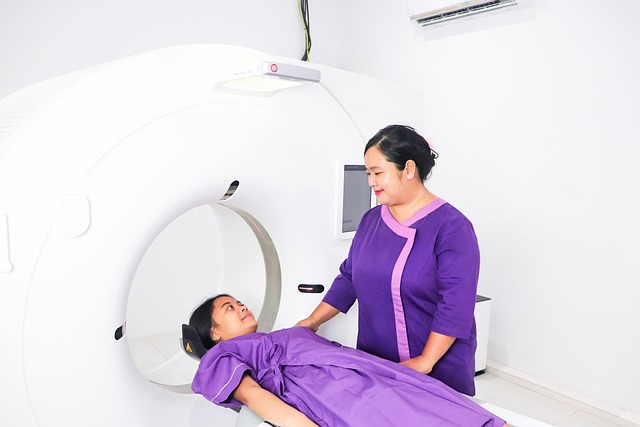Navigating Financial Support for Breast Cancer in 2025
Facing a breast cancer diagnosis brings a multitude of challenges, not least among them the significant financial burden. From medical treatments and medications to lost income and unexpected expenses, the costs can be overwhelming. Understanding the available financial support options, particularly grants, is crucial for patients and their families seeking to alleviate some of this pressure and focus on recovery.

A breast cancer diagnosis can introduce substantial financial strain, impacting individuals and families across the United States. The costs associated with treatment, which can include surgery, chemotherapy, radiation, and long-term medication, often extend beyond what insurance might cover. Beyond direct medical expenses, patients may face indirect costs such as transportation to appointments, childcare, lost wages due to time off work, and specialized nutrition or equipment. Navigating these financial complexities is a critical part of the cancer journey, and various forms of assistance, including grants, are designed to help ease this burden.
Understanding Breast Cancer Grants
Breast cancer grants are financial awards provided by charitable organizations, foundations, and sometimes government programs, specifically to help patients manage the costs associated with their diagnosis and treatment. Unlike loans, grants do not need to be repaid, making them a valuable resource. These grants can cover a wide range of needs, from direct medical bills and prescription co-pays to more general living expenses like rent, utilities, and groceries, which become difficult to manage when income is affected by illness. Eligibility criteria vary significantly among different grant programs, often considering factors such as income level, geographic location, stage of cancer, and specific needs.
Applying for Breast Cancer Grants in 2025
The process for applying for breast cancer grants typically involves several steps. Patients or their caregivers will often need to research available programs to find those that match their specific situation and needs. This usually includes gathering necessary documentation such as medical records confirming diagnosis, proof of income, and details of financial hardship. Many applications can be completed online, while others may require mailed forms. It is often beneficial to seek assistance from social workers, patient navigators, or financial counselors at cancer centers, as they can provide guidance on identifying suitable grants and help with the application process. Early application is often recommended, as funds may be limited and distributed on a first-come, first-served basis.
Exploring Specific Breast Cancer Grants
Many organizations are dedicated to providing financial support for breast cancer patients. These groups often focus on different aspects of care or specific populations. Some may offer grants for specific treatments, while others provide assistance for non-medical expenses. It is important for individuals to carefully review the mission and eligibility requirements of each organization to ensure alignment with their needs. The landscape of available grants can evolve, so staying informed about current offerings is key for those seeking assistance in 2025.
General Financial Assistance for Cancer Patients
Beyond breast cancer-specific grants, there are broader financial assistance programs available for cancer patients regardless of the type of cancer. These can include co-pay assistance programs, medication assistance programs, and funds for non-medical needs. Many national organizations and local services offer resources that can help with travel costs for treatment, lodging during extensive outpatient care, and even emotional support services that indirectly alleviate financial stress by connecting patients with community resources. Exploring both disease-specific and general cancer support options can provide a comprehensive safety net.
Navigating Grant Application Processes
Successfully navigating the grant application process requires attention to detail and persistence. It is crucial to read all instructions carefully and provide accurate, complete information. Missing documents or incomplete forms can lead to delays or rejection. Organizing all necessary paperwork in advance can streamline the process. Additionally, some grants may require a letter from a healthcare provider or a social worker, detailing the patient’s medical condition and financial need. Following up on applications and being prepared to answer additional questions can also be part of securing support.
| Provider Name | Services Offered | Key Features/Benefits |
|---|---|---|
| The Pink Fund | 90-day non-medical bill payment | Direct bill payment for housing, utilities, transportation |
| CancerCare | Financial assistance, counseling, support groups | Co-pay assistance, transportation, childcare, home care |
| Patient Access Network (PAN) Foundation | Co-pay and premium assistance | Helps underinsured patients afford out-of-pocket costs |
| Susan G. Komen | Treatment assistance, diagnostic support | Offers grants for screening, treatment, and living expenses |
| Breast Cancer Assistance Fund | Financial aid for basic needs | Focuses on patients in active treatment, covers essentials |
Prices, rates, or cost estimates mentioned in this article are based on the latest available information but may change over time. Independent research is advised before making financial decisions.
This article is for informational purposes only and should not be considered medical advice. Please consult a qualified healthcare professional for personalized guidance and treatment.
Securing financial support through grants can significantly reduce the burden on breast cancer patients and their families, allowing them to focus more fully on health and recovery. While the process requires research and careful application, the availability of numerous organizations dedicated to providing assistance offers a vital lifeline. Understanding the landscape of available grants, both specific to breast cancer and general for cancer patients, is an empowering step in managing the comprehensive impact of a diagnosis.




